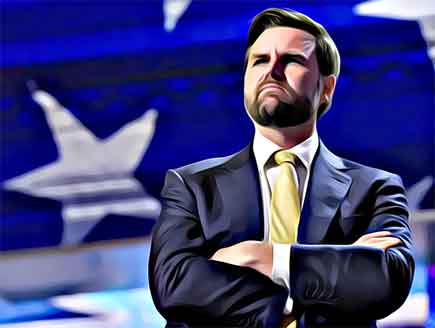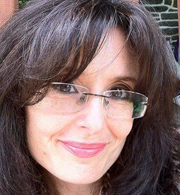
About a week ago, I attended a JD Vance rally.
It had aspects of one of those rousing Trump "I'm Proud to Be An American" events.
There were GOP officials, there were signs announcing things like "Kamala Kaos," there was a lot of red, white and blue, and there was music, including Gloria Gaynor's evergreen "I Will Survive."
The energy was high, even in the rather limited space of South Philly's Arena.
But the purpose of the event wasn't to cheerlead for the vice presidential nominee or his absent running mate. It was much more serious.
Vance was there to discuss the opioid crisis, and he showed a humility that Trump never would by ceding the podium to families who had been touched by the plague of addiction.
There were the parents who had lost a daughter to the disease, a story that was doubly heartbreaking because she'd been in recovery and seemed to have come out on the other side of the tunnel.
There was the woman whose brother is an active addict and whose mother keeps Narcan in her closet in case he overdoses while sitting on her couch.
Vance was able to tie these tragedies into the problems at the border and the failure of the current administration to stem the tide of fentanyl, but it was much less politics than it was about people.
And Vance knows that story from the inside of the maelstrom.
As famously documented in his memoir "Hillbilly Elegy," he grew up the son of an absentee father and a drug-addicted mother.
That book was made into a profound and devastating film of the same name.
( Buy it in hardcover at a 39% discount! by clicking here or order in KINDLE edition at a 21% discount by clicking here. Sales help fund JWR.)
I had read the book when it was first published, and am re-reading it now since Vance was picked as Trump's VP. It could have been my father’s story.
There are differences, of course. Appalachia and Philadelphia are not the same, but little boys and their sorrows are shared across geography and generations.
My father, like Vance, had very little contact with his own father growing up. His mother, like JD's mother, had her issues, even though she was more present in his life than the VP candidate.
One of the things, though, that made me think that Teddy and JD had lived parallel lives was the grandmother.
JD's Mamaw was a force of nature, imperfect in many ways, angry and aggressive and unforgiving, but she knew how to love and protect those she loved.
My father's grandmother, his Nana, was similar in that last regard.
An immigrant from Sweden, strict Lutheran with an unforgiving and demanding streak of her own, she provided a buffer for my father against the environmental turmoil swirling around him.
She gave him money when he was hungry, hid him from the rage of adults, made him go to school, although that was often a losing battle, and taught him the importance of the church.
By the time I remembered Nana, she was an invalid in a hospital bed on the top floor of a row home in Southwest Philly. I'd be forced to sit with her and rub her feet while we watched endless episodes of Lawrence Welk when I would have preferred playing with the kids in the street.
And when I dared complain, my father would look at me with a glacial blue stare that warned me to be silent.
He must have been remembering what she had been, and done, for him.
So I understand JD Vance a little bit better than the leftist pundits who mock his words, take them out of context, call him a Silicon Valley phony, and generally try to undermine his character.
When you come from nothing, or near nothing, your first and greatest victory is getting out of the valley.
Vance did that in a spectacular manner, and without the help of monied mentors. So did my father, who served in the military, went to college at night while juggling three and sometimes four jobs, and died at the age of 42 having been recognized as one of the greatest lawyers of his generation.
Early deprivations have a tendency to strengthen the resolve of those who don't whine or make excuses for the random cruelty of destiny.
You might not support Vance's candidacy, and I respect that.
You might take issue with his language about cats and ladies, and while I think you have absolutely no idea how deeply the VP candidate honors women, I'm not going to judge your … judgment.
But this is not about politics. This is about character.
And if you cannot see that JD Vance is a part of the powerful narrative of American struggle and American triumph like many before him, including my own father, I feel sorry for you.
–
(COMMENT, BELOW)
Christine M. Flowers is a lawyer and columnist.


 Contact The Editor
Contact The Editor
 Articles By This Author
Articles By This Author